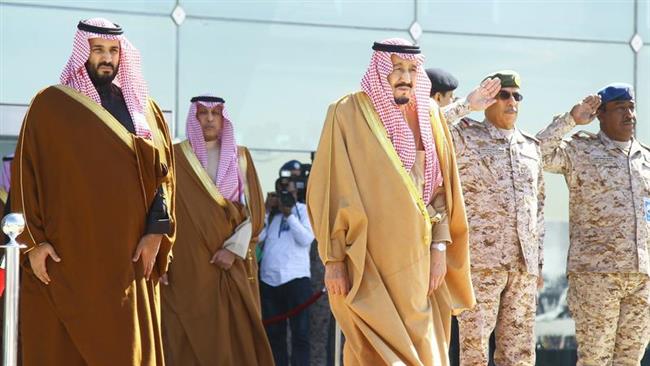New Saudi counterterrorism law aims to silence critics: HRW
Human Rights Watch (HRW) has strongly denounced Saudi Arabia's new counterterrorism law, saying it could be used to further stifle dissent across the kingdom.
The New York-based group said in a statement on Thursday that the law, introduced earlier this month, could further enable authorities in the ultra-conservative kingdom to silence critics.
"Saudi authorities are already methodically silencing and locking away peaceful critics on spurious charges," the statement read.
"Instead of improving abusive legislation, Saudi authorities are doubling down with the ludicrous proposition that criticism of the crown prince is an act of terrorism," it added.
Elsewhere in the statement, HRW said that the new law includes "overly broad definitions" of acts of terrorism, which are not limited to violent acts.
According to the Saudi Gazette daily and other local media, the law includes penalties of up to 10 years in jail for insulting the king and crown prince as well as the death penalty for other acts of "terrorism".
The new legislation, which replaces another widely criticized counterterrorism law introduced in 2014, comes as Crown Prince Mohammed bin Salman consolidates power to a degree that is unprecedented in recent Saudi history.
The passage of the legislation coincided with a major government crackdown on the kingdom's elites, ostensibly to fight corruption.
There was no immediate comment on the statement from the heir to the throne or other authorities in the kingdom, which has long been criticized for its human rights record.
In May, a UN special rapporteur on human rights had demanded that the kingdom stop using an "unacceptably broad definition of terrorism" to target human rights defenders, writers, bloggers and other critics.
In early February, HRW said Saudi Arabia had stepped up the politically-motivated arrests, prosecution, and conviction of peaceful dissident writers and human rights campaigners since the beginning of the current year.
Several rights groups have strongly denounced Riyadh’s relentless crackdown on human rights campaigners in the kingdom.
The kingdom has also stepped up security measures in the Shia-majority Eastern Province, which has seen numerous protest rallies against religious persecution.
Demonstrations intensified in the province after the January 2016 execution by the regime of prominent Shia cleric Sheikh Nimr al-Nimr.
In recent months, Saudi Arabia’s deadly crackdown on the besieged Shia town of Awamiyah has killed dozens of people and forced thousands of its residents to flee their homes.
Awamiyah, located in the eastern Qatif region, has been under military lockdown since May, when Saudi troops began destroying al-Mosara.
Locals and the United Nations say the regime is after erasing cultural heritage in the Shia town and redeveloping the area.
Israel admits assassinating Hamas leader, vows to inflict same fate on Yemeni fighters, people
VIDEO | Yemeni forces repel US-British attack, down F-18 Jet
Iran’s capabilities vast; enemy’s ‘maximum pressure’ policies all failed miserably: Senior official
Iran’s economy grew 2.7% y/y in Sep quarter: CBI
VIDEO | Freelancers in Gaza strive to stay online amid genocide
Mikati demands Israel's withdrawal from south Lebanon
Yemeni army strikes Israeli military sites with drones
‘Clock ticking’: UNRWA slams unjustifiable killing of children in Gaza












 This makes it easy to access the Press TV website
This makes it easy to access the Press TV website